|
Opinions Five reasons behind Trump’s interest in Cuba 19 DECEMBER 2016 8:25 AM Here’s a look at why President-elect Donald Trump might be interested in hotel opportunities in Cuba. By Ivar Yuste In March this year, we had the opportunity to watch Trump Hotels’ CEO on CNN stating that he would open a Trump Hotel in Havana. Last week, Bloomberg quoted Spain’s Iberostar CEO, Miguel Fluxa?, saying that he knew “President-elect Donald Trump was looking at buying hotels in It remains to be seen how Trump reconciles his political agenda with his business interests but, clearly, Trump understands some of the key factors that make Cuba today the hottest hotel market in the world: 1. Similar infrastructure levels than peer markets in the region The number one concern that hotel groups and real estate companies that are not present in Cuba raise, when asked about their plans for this destination, is that “Cuba has no infrastructure.” I can only assume that this presumption comes from companies that have not scouted for sites in Mexico, Dominican Republic, Costa Rica, Brazil and … Cuba, amongst other countries. In most instances, Cuba has nothing to envy to other markets in the region. The fact that 40% of the hotel supply is operated by Spanish hotel groups and that Melia Hotels International, a company listed in the Spanish stock exchange, has turned its 20% market share in Cuba into the most lucrative business unit of the company globally, is perhaps a sign that this market is able to cater to the 3.8 million visitors that are forecasted to arrive to Cuba this year. American Airlines, Jet Blue, Swiftair and Sun Country Airlines, which have recently announced scheduled flights into Cuba, have really been flying to Cuba for years now using charter licenses, and have been landing in Cuban international regional airports such as Cienfuegos, Trinidad and Santiago de Cuba. These regional airports seem to cater reasonably well to the tourist traffic that these cities are increasingly attracting through the U.S. visa cultural program. |
2. It’s a numbers game
According to think tank Cuba Study Group, 350, 000 North Americans entered Cuba in 2014. At the time, that figure accounted for 11.7% of the total arrivals. So back then, the U.S. was already the second-largest feeder market into Cuba after Canada. Canada at the time was bringing into Cuba an excess of 1 million tourists, with only one-tenth of the population of the U.S. You do the math; Even if only 67 million U.S. citizens are holders of a valid passport, the potential number of arrivals into Cuba is huge.
3. Virgin leisure real estate market
Up to the passing of new Foreign Investment Law 118 in March 2014,
only companies that had 100% Cuban capital could sell real estate to
foreign buyers in Cuba. Most of this real estate inventory was
located in Havana, but the experience was not terribly successful.
Through law 118, the government has cleverly decided to involve
foreign partners in the deployment of leisure real estate sales
operations. From now on, only joint ventures between Cuban
companies and foreign companies will be able to sell real estate to
foreign buyers. The format of the products will be leasehold for life. The opportunity for Miami real estate developers in particular and for U.S. developers in general, such as Trump, is tremendous.
On the rental side of the equation, the upside is also significant. There’s an excess of 18,000 private homes operating legally in the tourism rental market. This stock amounts to 27% of the total hotel room market in Cuba (65,000 hotel rooms), and for now, there is no cap to the number of houses that can get into the market. All of them can be rented to foreigners. Once again, Airbnb has already accumulated 25% of the Cuban rental market well ahead of local players such as Planeta Casa,Detra?s de la Fachada, Por el Techo, Casas Cubanas and Espacio Cuba.
Judging by the profile of U.S. visitors that come to Cuba under the cultural visa program (senior couples with no children and no mortgages), and considering the $3 billion that is injected annually back into Cuba in remittances by the 1.5 million Cubans residing abroad, it is easy to see why the leisure real estate market is a phenomenal opportunity. In the South coast of Cuba, which is more popular with U.S. visitors who wish to visit the cultural heritage of the island and its colonial architecture, European tour operators are already feeling the squeeze generated by the U.S. and are willing to invest in the acquisition of the apartment units being developed by these new joint ventures for fear of running out of stock to accommodate their clients. Private homes are already widely used by these tour operators for lack of suitable hotel inventory.
4. Underdeveloped leisure market
Knowing that Cuba has three times less hotel rooms per square kilometer than the Dominican Republic or that it receives 60% less tourism arrivals with double the surface of the Dominican Republic is just the tip of the iceberg.
The opportunity in the hotel sector extends also into the cruise segment, the golf sector and the marina business. The Varadero Golf Club is the only golf course on the island, while the Dominican Republic has 26 golf courses. The newly-inaugurated Varadero marina is the only
marina in the country built with modern international standards. Spanish ferry company Balearia plans to triple its traffic between Cuba and Miami compared with its traffic between Freeport (Bahamas) and Miami. Carnival Cruises’ prices for Cuba are double its prices to Dominican Republic.
5. Investment is the way to go
As stated by Trump in his CNN interview in March, the way to enter Cuba is through investment.
As American and European hotel operators have already experienced first-hand, management contracts only qualify as such when the manager of the property has full responsibility and control of staff recruiting and training, food-and-beverage supplies, energy supplies and capital expenditure. Although it is not necessarily a negative thing, in Cuba, this is not the case.
As Melia? and Iberostar have proven, setting up joint ventures is the way to maximize returns. Joint ventures allow the sourcing and importing of construction materials, F&B supplies, the selection of skilled staff and a more business-oriented management of hotel projects and properties.
Moreover, for those hotel companies that extend their business into leisure real estate, the joint- venture model allows the development and commercialization of hotel-branded residences that play a dual role of adding valuable and scarce quality hotel supply to the project, while improving the financial returns of the development through the commercialization of these units to individual foreign investors (under a for life leasehold format).
The recent death of Fidel Castro is only putting more pressure on Trump’s business to do what he announced in March. Meanwhile, most Trump Hotels competitors are obtaining or applying for OFAC (Office of Foreign Assets Control) licenses into Cuba.
Ivar Yuste is a Partner with hospitality consulting firm PHG in Spain and member of The International Society of Hospitality Consultants (www.ishc.com). PHG has been actively involved in Cuba hotel projects since 2006 and provides hotel advisory services to hotel owners and hotel chains in Spain, North Africa and Latam. Visit PHG at www.phghr.com or email Ivar Yuste directly at ivaryuste@phghr.com.
The opinions expressed in this column do not necessarily reflect the opinions of Hotel News Now or its parent company, STR and its affiliated companies. Bloggers published on this site are given the freedom to express views that may be controversial, but our goal is to provoke thought and constructive discussion within our reader community. Please feel free to comment or contact an editor with any questions or concerns.

